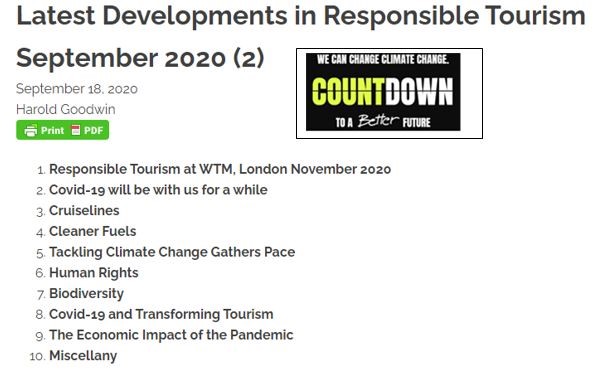This from The Economist on Friday
“COVID-19 has given a sense of how hard it will be to deal with climate change. As economic activity has stalled, carbon-dioxide emissions have fallen sharply. But to have a decent chance of keeping Earth’s mean temperature less than 2°C above pre-industrial levels, net greenhouse-gas emission must fall close to zero by mid-century. That requires, if not halting the world economy in its tracks, then rewiring it. For that reason climate change is about to upend the corporate world. Harassed by consumers, regulators and lawyers, businesses’ greatest hope may lie in technological change.”
The Economist was founded in 1843 to campaign for the abolition of tariffs on imported corn. It is a radically centrist newspaper typically championing neoliberalism, particularly free markets, free trade, free immigration, deregulation, and globalisation. Its readership includes a large proportion of business leaders and policy makers around the world.
Neoliberalism is in retreat. In an increasingly protectionist world this affects tourism directly as travel across borders becomes less frictionless, decarbonisation becomes a political imperative and biodiversity loss moves up the political agenda. Neoliberalism has not been abandoned but governments are becoming more interventionist, not least in regulating in considerable detail how people work, spend their leisure (and who with) and how we interact with family and friends. Increasingly government interventions regulate the framework within which travel and tourism businesses and destinations function.
As the Economist points out in its 19th September edition a major change of policy is underway. Since the mid-seventies the UK’s Conservative Party has been aggressively neoliberal, committed to free markets and opposed to state aid, the very idea of governments picking winners has been anathema to the conservatives for 45 years. But not apparently any more. Johnson’s government, following Cummings’s lead, is insisting that the UK not be bound by the EU’s state aid regulatory framework. The government’s commitment to state aid may prevent a negotiated Brexit. The EU’s rules against state aid were largely developed by a British team under Lord Cockfield on behalf of Margaret Thatcher. Now the British government under Cummings and Johnson is willing to abandon relatively frictionless trade with Britain’s largest market in order to be able to provide state aid to British companies.
The growth of travel and tourism internationally over the last fifty years had been a product of increasing prosperity providing increasing numbers of people with the financial resources and paid leave necessary to enable them to travel abroad. The closure of borders, as governments have sought to control the spread of COVID-19, should remind us of how important open borders and visa free travel have been to the growth of our sector. Most internal borders in Europe have been re-introduced to fight the pandemic. Research for the European Parliament in 2016 found that the suspension of Schengen foresaw that members states, depending on region, sector and alternative trade channels, would suffer a loss of between €5 billion and €18 billion per year. A significant proportion of this would fall on tourism. The fragmentation of the visa system and border checks creates both visa costs (fees and administration) and friction at borders which costs time and the consequent hassle may be a disincentive to travel.
The Economist in its current edition leads on Power in the 21st century. While oil fuelled the 20th century it will not fuel the next. The clean-energy industry is gaining momentum, clean-power stocks are up 45% on 2020, the president of the European Union wants the EU to cut greenhouse-gas-emissions by 55% over 1990 levels in the next decade. It would surely be naïve and foolish to think that aviation will not be subject to the same pressures.
The Economist in its leader goes on to point out that “decarbonizing energy will avoid the chaos of unchecked climate change, including devastating droughts, famine, floods and mass dislocation.” They recognise that the response of China and America will be critical and that either, or both, could derail progress. The petrostates (8% of world GDP and 900 m citizens) could react by fighting for market share and by reducing the price for fossil fuels undermining a transition to cleaner fuel.
They conclude “… the temptation will be to ease the adjustment, by taking the transition more slowly. … the investments being contemplated fall drastically short of what is needed to keep temperatures within 2C of pre-industrial levels, let alone the 1.5°C required to limit that environmental, economic and political turmoil of climate change.” The Economist estimates investment in wind and solar capacity needs to be tripled. As they point out “… if the shift towards fossil- fuel free renewable energy accelerates, as it must, it will cause even more geopolitical turbulence.”
They conclude: “The move to a new energy order is vital, but it will be messy.” At WTM London on November 10th we shall be considering the imperative to decarbonise aviation.
At this year’s virtual WTM London in November we shall be looking at the biodiversity crisis and at what the tourism sector can do to increase its positive impact to assist in maintaining and recovering biodiversity. Justin Francis Co-Founder and CEO of Responsible Travel is the UK government’s Council for Sustainable Business (CSB) biodiversity lead. The CSB advises the Department for Environment, Food and Rural Affairs on how to achieve Biodiversity Net Gain measured against realising a 10% target. How can tourism contribute to a net gain in biodiversity?
There is more information about several of these themes in the latest edition of Responsible Tourism News now published twice monthly.

You may also be interested in…
- Why destinations should reinforce responsible tourism within their strategies
- How are biodiversity loss and human disease affecting tourism?
- Which trends should guide tourism’s recovery?

